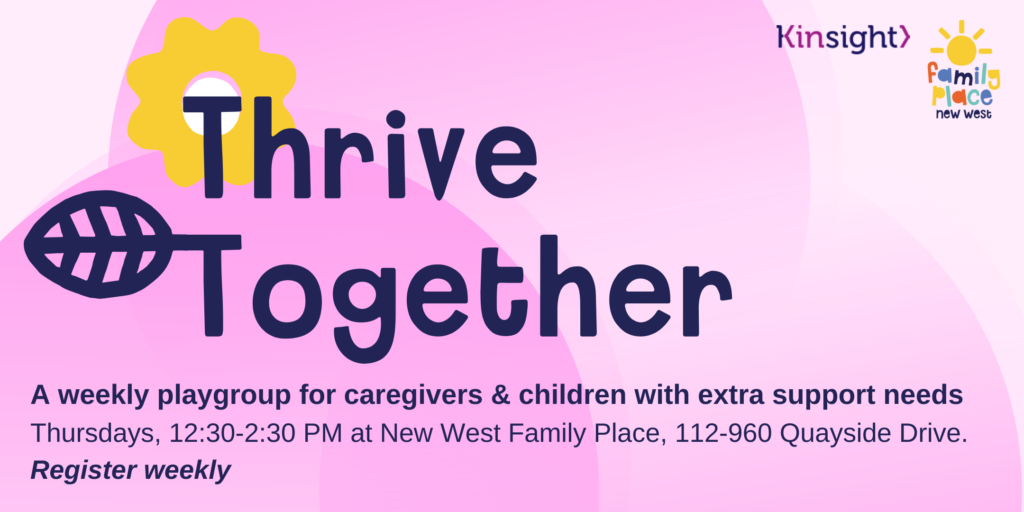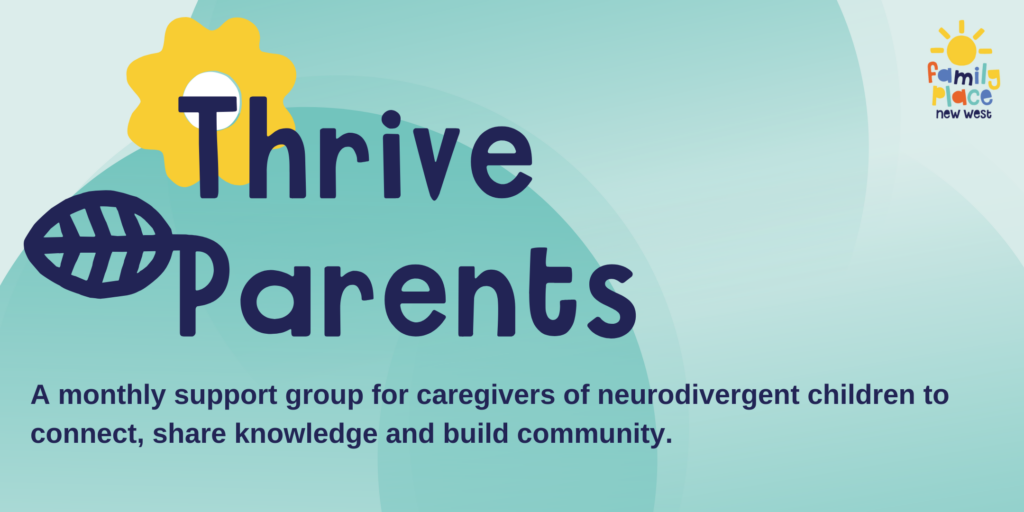April 2 is Autism Awareness Day, celebrating families on this journey with their children. Raising a child with autism brings unique challenges and rewards. The early years often involve seeking a diagnosis, preparing for school, and navigating public spaces. At Family Place we are working to create tailored programming to meet the needs of our families on this path.
The Quest for a Diagnosis
Parents face hurdles in getting an autism diagnosis for their child. Early diagnosis opens doors to support services and educational strategies, which help a child’s development. However, the process can be uncertain and emotionally hard. Parents may feel relief or anxiety as they seek clarity about their child’s needs. Therefore, we encourage families to discuss their experiences with Kinsight guests at drop-ins for help. Let us know when your child receives diagnosis and we will be happy to celebrate with you!
Preparing for School
As children with autism approach school age, parents worry about readiness and whether or not the classroom or materials will accommodate their child. Each child has unique strengths and challenges, making finding the right school environment tough. Consequently, parents may worry about communication, socialization, and adapting to classroom routines. Gifted or “3x autistic” children may act out when needing greater academic challenges but do not present the same as their peers who might have mutism. Thus, early intervention and tailored educational strategies help children with autism thrive in school.
Navigating Public Spaces
Public spaces can challenge families with autistic children. Sensory sensitivities make environments with loud noises, bright lights, and crowds overwhelming. As a result, parents may find outings stressful, balancing their child’s comfort with participating in everyday activities. Fortunately, many organizations and businesses are making spaces more accessible by reducing noise, dimming lights, and minimizing sensory overload, creating inclusive environments for autistic children and their families. We work hard to ensure our space is inclusive to our friends with a variety of programming.


Building Support Networks
Building a strong support network is essential. Connecting with other families, support groups, and professionals who understand autism provides valuable resources, advice, and emotional support. For example, New Westminster Family Place offers the weekly Thrive Together playgroup for parents and neurodivergent children. Additionally, Thrive Parents is a monthly gathering for parents of neurodiverse children to connect. Open communication and mutual support within the family foster a positive environment where each member feels understood and valued.
Promoting Acceptance and Advocacy
Acceptance and advocacy are critical for supporting autistic children. Families can educate others about autism, challenge stereotypes, and ensure their child is valued and included. By promoting acceptance and advocating for their child’s needs, parents help create a more inclusive society where every child is recognized for their unique strengths and potential. By embracing autistic children’s strengths, building support networks, and promoting acceptance, families create a nurturing environment where their child can thrive.
